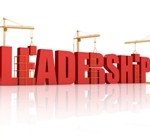 By Ram Charan
By Ram CharanThe Covid-19 crisis isn’t behind us yet, but companies have to start putting the economic pieces together for their business to not just survive but also build a new future. At this point, there are three priorities most companies should act on with great haste: employee safety, cash management week by week and a digital connection with customers, suppliers and ecosystem partners. Missing any of the three could seriously jeopardize the continuity of the business.
Companies that are not already on their way to being digital have to realize the urgency. It’s not just digital giants like Amazon that threaten their future. It’s also legacy companies that are becoming digital. In the pandemic, they’ve been able to adapt more quickly. And, under normal circumstances, they can gain share very fast.
Maybe you’ve come to terms with the fact that you must become a digital company. But you’re convinced that this is not the time to act. You have to realize that waiting for stability is a luxury you can’t afford. Really, there is no need to wait.
Talking to a number of CEOs, I have learned that there are myths about what digitization costs, how much cash it will use, and how long it will take. Business leaders don’t think they can show a clear return on their investment. Besides, they’re convinced that people in the organization will resist it.
Well, that’s no longer the case. You can now pick the most urgent, most critical tasks—the ones that will help you get cash, increase revenues or connect with customers, suppliers and ecosystem partners—and achieve them in bite-size portions. You can see benefits in weeks or months, not years.
Here are some examples:
• Dynamic pricing. It is a necessity when uncertainty is here to stay.
• Collection of receivables. The collections process is critical to liquidity.
• A continuous connection with customers. You will need this to help you pick up how their behavior is changing, how demand is shifting and what the voice of the customer is. It will help with forecasting, with impacts on inventory and cash flow.
• A single source of data. Data-based decision-making, whether or not it’s automated, is now an imperative. But it is difficult to use data for decision-making if it is spread across many silos; it is highly inconsistent, and managers don’t trust it.
A number of small vendors now exist that can do projects like these for you in less than 90 days for less than $400,000.
Make your own list and take one or two tasks at a time. Then, reach out to small vendors (UST Global and Altimetrik are two I’m familiar with). Define your tasks clearly and precisely, just as you’ve done with outsourcing, facilities construction or other turnkey projects.
You might not realize that digital giants like Amazon all began using digital technology for one task at a time. They used small vendors—and still do—because they are fast, they cost less, and they take the project to completion. They become partners in operationalizing it. You focus on what needs to be digitized and why, and how it will create revenues, cash, margins, customer satisfaction or speed. The vendors focus on giving you the relevant digital platform or digital apps.
When it comes to organizational resistance, that is unlikely to exist anymore. If someone does resist, you have to deal with it right away.
One more thing: don’t be put off by terminology and tools with which you’re not familiar, like algorithms and big data. Algorithms—the mathematical rules by which data is processed—have been around for hundreds of years. Roughly two dozen of them are used for common tasks and are readily available.
So, take the mystery out and take on small turnkey tasks that can build your business and ensure its continuity.
Source: Chief Executive






 By Darleen DeRosa
By Darleen DeRosa by Laura Gassner Otting
by Laura Gassner Otting by
by